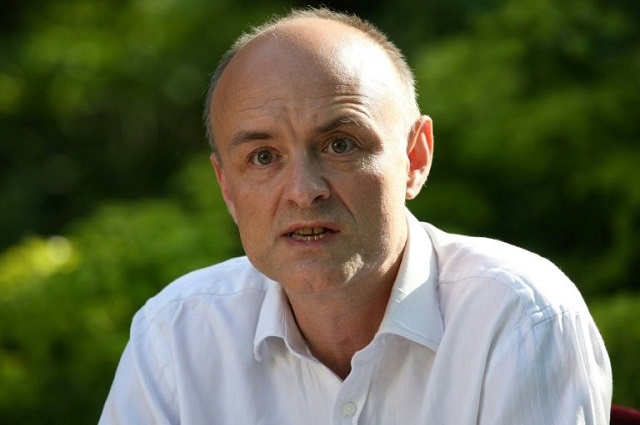
London, United Kingdom | AFP | British Prime Minister Boris Johnson’s government was hit by its first resignation on Tuesday over the controversy surrounding his top aide Dominic Cummings’ cross-country trip during the coronavirus lockdown.
Undermining attempts by ministers to try and move on from the crisis which has dominated British politics for days, Douglas Ross, a minister for Scotland, quit in protest.
“I have constituents who didn’t get to say goodbye to loved ones; families who could not mourn together; people who didn’t visit sick relatives because they followed the guidance of the government,” he said in a Twitter statement announcing his departure.
“I cannot in good faith tell them they were all wrong and one senior advisor to the government was right.”
He added that Cummings’ interpretation of government rules was “not shared by the vast majority of people”.
The resignation will pile more pressure on Cummings, who held an extraordinary press conference Monday to justify driving his wife and young son on a 264-mile (425-kilometre) trip from London to Durham in the northeast of England during the height of the coronavirus crisis.
Cummings has said he had the virus around the time of the trip, and his wife was confirmed as having contracted COVID-19.
– ‘Lack of credibility’ –
Not long after Ross quit, Harriet Baldwin joined a growing list of Conservative MPs calling on Cummings to resign.
Another MP, Mark Pawsey, said Cummings had acted “against the spirit of the lockdown” and should be sacked, while MP William Wragg tweeted that the government was throwing away “political goodwill” over the scandal.
Tory party grandee Michael Heseltine told Sky News that “the lack of credibility” in Cummings’ version of events was “damaging the government”.
A YouGov poll taken after Cummings’ press conference found that 59 percent of respondents thought he should resign, up from 52 percent.
More that two-thirds — 71 percent — thought he had broken the government’s lockdown rules.
Some members of the clergy have also called on him to stand down as well as opposition party members, who will meet later today regarding the crisis.
Downing Street said it “regrets” the decision by Ross.
The resignation came after a cabinet heavyweight defended Cummings and said the controversial aide did not break the law.
Michael Gove, Chancellor of the Duchy of Lancaster, said Cummings had acted reasonably in driving from London to Durham and then taking a separate journey to a local beauty spot, Barnard Castle, to — as Cummings claimed — test his eyesight.
“What’s clear is that he didn’t break the law, he didn’t break the rules, he sought to protect his family and he also sought to ensure that the risk of anyone in his family infecting anyone else was absolutely minimised,” Gove told the BBC on Tuesday.
Cummings said he drove to his parents’ home in Durham after feeling ill because he and his wife were both feeling ill and needed possible back-up childcare for their young son.
– No regrets –
Cummings has resisted calls to resign, telling reporters he acted “reasonably and legally”.
“I don’t regret what I did,” he added.
The prime minister called Cummings’ actions “plausible”.
Johnson’s spokesman said on Tuesday that “from the PM’s point of view, he has set out that he believes Dominic Cummings acted reasonably, legally and with integrity and care for his family and others”.
Also on Tuesday, the Office for National Statistics said the number of deaths in Britain “involving” the coronavirus had risen above 46,000, far higher than the 36,914 deaths officially confirmed in the government’s count.
 The Independent Uganda: You get the Truth we Pay the Price
The Independent Uganda: You get the Truth we Pay the Price



